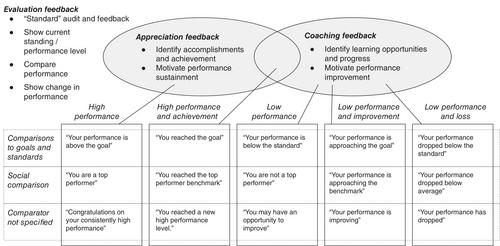Precision feedback: A conceptual model
Abstract
Introduction
When performance data are provided as feedback to healthcare professionals, they may use it to significantly improve care quality. However, the question of how to provide effective feedback remains unanswered, as decades of evidence have produced a consistent pattern of effects—with wide variation. From a coaching perspective, feedback is often based on a learner's objectives and goals. Furthermore, when coaches provide feedback, it is ideally informed by their understanding of the learner's needs and motivation. We anticipate that a “coaching”-informed approach to feedback may improve its effectiveness in two ways. First, by aligning feedback with healthcare professionals' chosen goals and objectives, and second, by enabling large-scale feedback systems to use new types of data to learn what kind of performance information is motivating in general. Our objective is to propose a conceptual model of precision feedback to support these anticipated enhancements to feedback interventions.
Methods
We iteratively represented models of feedback's influence from theories of motivation and behavior change, visualization, and human-computer interaction. Through cycles of discussion and reflection, application to clinical examples, and software development, we implemented and refined the models in a software application to generate precision feedback messages from performance data for anesthesia providers.
Results
We propose that precision feedback is feedback that is prioritized according to its motivational potential for a specific recipient. We identified three factors that influence motivational potential: (1) the motivating information in a recipient's performance data, (2) the surprisingness of the motivating information, and (3) a recipient's preferences for motivating information and its visual display.
Conclusions
We propose a model of precision feedback that is aligned with leading theories of feedback interventions to support learning about the success of feedback interventions. We plan to evaluate this model in a randomized controlled trial of a precision feedback system that enhances feedback emails to anesthesia providers.


 求助内容:
求助内容: 应助结果提醒方式:
应助结果提醒方式:


